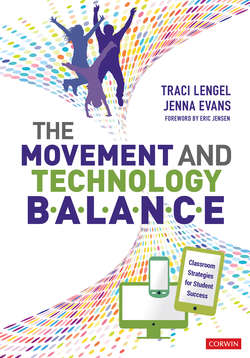Читать книгу The Movement and Technology Balance - Traci Lengel - Страница 50
На сайте Литреса книга снята с продажи.
The Mental/Emotional Roller Coaster
ОглавлениеToday’s youth are using their devices most often to connect with their peers and social platforms. The digital age has created a world of interconnectedness for children, a place where news travels fast and someone is always watching. While the positive effects of this can be a sense of online community and belonging, there is another side that fosters a sense of competition, fear, and inadequacy. Consider the following studies:
A study at the University of Pittsburgh found a correlation between social media and negative body image. Kids who spent more time on social media had between 2.2 and 2.6 times the risk of eating and body image concerns compared to their peers who spent less time on social media.
A separate study from the University of Pittsburgh School of Medicine showed that more time on social media increases the likelihood of sleep problems and symptoms of depression.
The UCLA Brain Mapping Center studied 13- to 18-year-olds and found that receiving a high number of likes on photos showed increased activity in the reward center of the brain (Hurley, 2018).
Adolescents and teens are living in a world where they are constantly on display in order to achieve social acceptance. The selfie-taking, Snapchatting, Instagraming world they live in is all about image and how many likes you can get. This social media madness results in a life riddled with anxiety and low self-esteem. The Royal Society for Public Health surveyed 14- to 24-year-olds about social media, and the results showed that all platforms led to increased feelings of depression, anxiety, poor body image, and loneliness (Ehmke, 2018). Teenagers are admitting to feeling depressed, hopeless, and considering suicide. Twenge (2017) and her colleagues conducted research that found a sudden increase in teens’ symptoms of depression, suicide risk factors, and suicide rates in 2012—around the same time that smartphones became popular. Twenge’s research found that teens who spend five or more hours per day on their devices are 71% more likely to have risk factors for suicide. Kids are watching the “highlight reel” of their peers’ lives and comparing their own life to the perfectionist angle the camera shows. The perspective of only seeing the good parts that others are willing to share makes teens feel inadequate and self-conscious about their imperfect lives. Bad news travels so fast within the social circles that there is little room for error because saying or doing one wrong thing can leave a lasting scar and be digitally replayed over and over for years to come. It’s a scary world to grow up in not only physically but emotionally.
Another factor in the mental/emotional roller coaster is the need for instant gratification. As younger generations become more accustomed to the immediate response and instant gratification that technology provides, we will become a nation of impatient humans who feel entitled to instant fulfillment. Even as adults, we demonstrate this impatience: Think about your reaction the last time the Internet froze or a webpage wouldn’t load. What fuels our love affair with streaming music and movies? How many people do you know that pay a significant yearly fee to an online retailer in order to get free two-day shipping any time they buy something? Even amusement parks will let you buy “skip the line” passes to avoid having to wait. But this impatience has an impact on our youth that can be devastating in the workforce. Graduates who have gotten used to immediate feedback in every aspect of their lives now have to enter the workforce or climb the corporate ladder that is riddled with failures, setbacks, and slow growth. How will they handle it? Are we preparing our future leaders to live in the real world, where change rarely happens overnight? What’s worse is that this desire for instant gratification can actually be physically addicting. “About 60% of 18- to 34-year-old respondents to a Pew Research Center survey said they sleep next to their cell phones so they don’t miss calls, texts or updates during the night” (Alsop, 2014). Instant gratification fuels our innate human pleasure principle and triggers a very real psychological response. We start to believe that we should instantly get a job, instantly fall in love, and instantly have success in life, and we end up with feelings of depression, rejection, and failure when we don’t get it.
